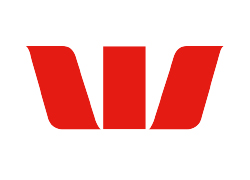Did your business implement any COVID-19 policies during the pandemic?
With the remaining restrictions removed on 15 August 2023, it’s a good time to review these policies and ensure they are still fit for purpose. Read our advice on how to do this, and how to manage staff leave for COVID-19 related illness going forward.
What are the updated changes to COVID-19 restrictions?
From 15 August 2023, there is no longer a legal requirement for people to isolate when they test positive for COVID-19.
What does this mean?
The end of the last remaining COVID restrictions means that if your employees test positive, there is no longer the requirement to stay at home. Although you can’t force employees not to come to work, you should support employees to isolate for the recommended 5 days. Having a worker come to work while sick could put the health of themselves and others at risk, and result in further disruption to normal business operations.
If you have an employee who tests positive for COVID, the same principles apply as they would with any other winter illness, you should encourage your employees to advise their manager if they test positive for COVID-19 and to be considerate during the period they think they could be infectious.
Note: Eligibility for the Leave Support Scheme ended on 15 August 2023. You can’t apply for anyone who started self-isolation after 13 August 2023.
COVID-19 / Sick Leave Policies
With this change announced, it may be a good time to review any policies that you implemented during the pandemic. As with any other policy or process in the workplace, we would recommend consulting with employees and unions before any changes are finalised.
It would be considered best practice to advise your employees of this change and what it means for your workplace. Although they are no longer required to isolate for seven days if they test positive for the virus, it is important to remind your employees to be considerate and apply common sense during this period to keep others safe and ensure business continuity.
Sick leave
Employees who are sick with COVID-19 should use their sick leave entitlement. If they don’t have any sick leave left, or are not yet entitled to sick leave, you could:
- Agree for them to take other leave such as annual leave or unpaid leave
- Allow them to take sick leave in advance
- Provide paid special leave
Planning and Preparation
One of the best ways to keep you and your team safe and well throughout winter is by providing a work environment that takes preventive action to reduce the spread of bugs.
Our ideas on actions you can take include:
- Provide appropriate sanitary items such as tissues, no-touch rubbish bins, hospital grade hand soap and hand sanitiser.
- create a regular cleaning and sanitisation plan for your store of frequent touch points (door handles, eftpos machines, phones) and common areas.
- Consider offering staff funding for, or time off to enable them to get the yearly flu vaccination.
- Hang signage in common areas reminding people about good hygiene practices.
- Encouraging social distancing in your store.
- Ensure people stay home if unwell.
Spending some time planning and implementing the appropriate tools and processes (taking a ‘ambulance at the top of the cliff’ approach) will go a long way toward minimising business disruption this winter.
Further advice on current COVID-19 guidelines:
FAQs for reviewing COVID-19 policies
Did you know that as a member of Retail NZ, you get unlimited access to our Advice Service and variety of resources, which can guide you in staying updated about the current COVID-19 restrictions and sick leave policies, ensuring you meet all of your obligations. Check out our other member benefits, and how to join here.
If you have any questions or would like help understanding the current COVID-19 guidelines, get in touch with our Advice Service on 0800 472 472 (1800 128 086 from Australia) or email [email protected].
Updated January 2024.
















